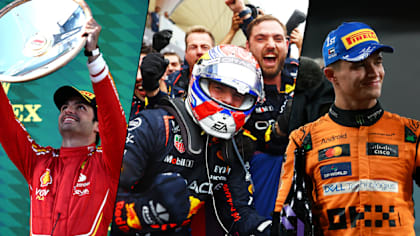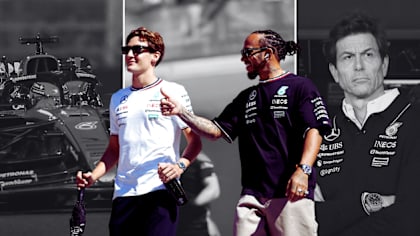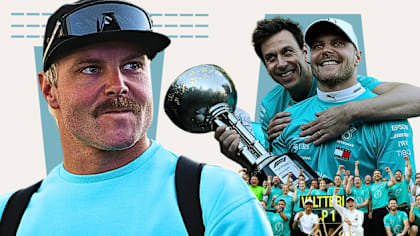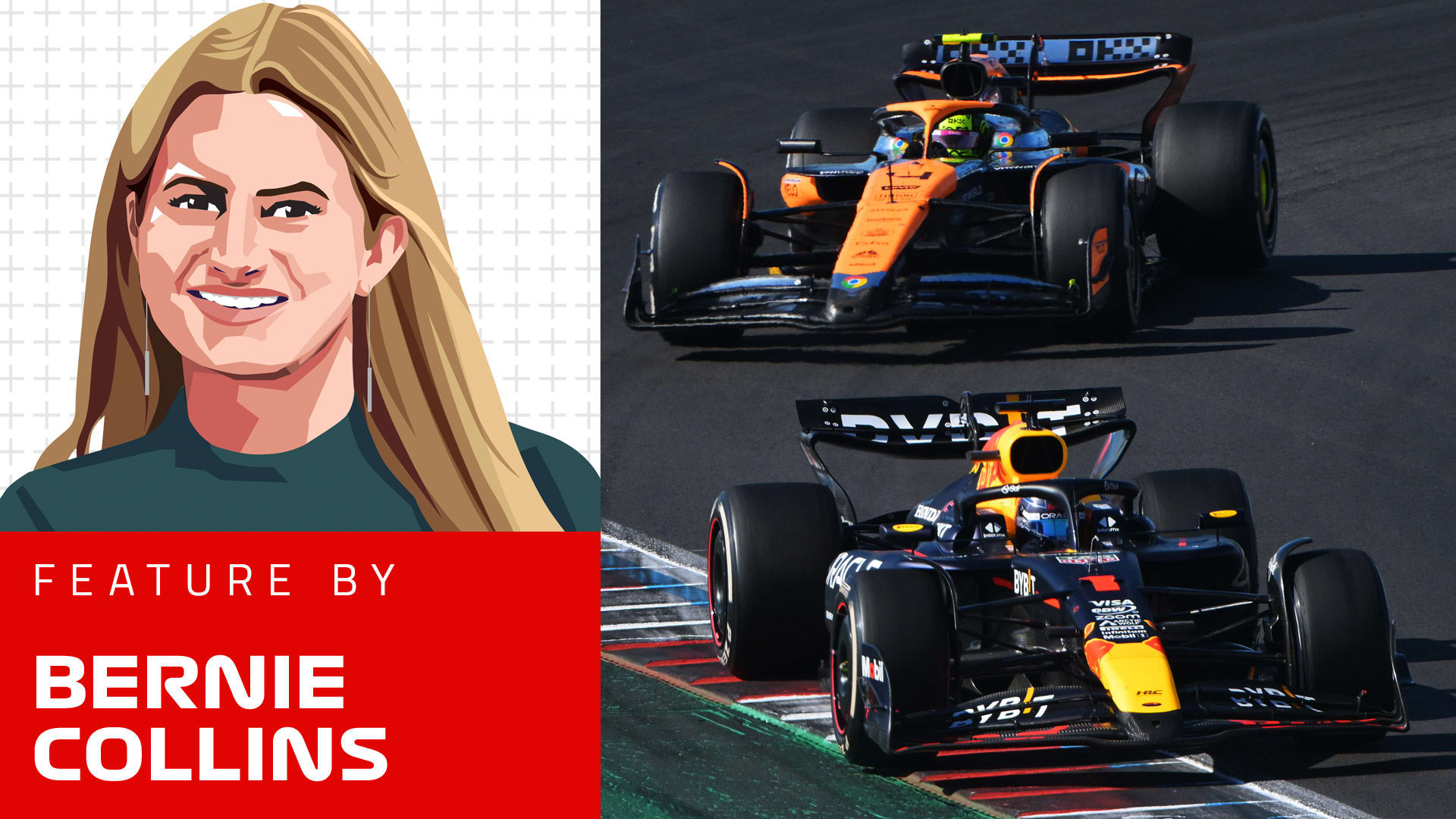From new records being forged to another record streak ending, there was no shortage of talking points - or standout performers - from the 2016 Formula 1 Emirates Japanese Grand Prix...
The Winners
Mercedes-Benz and the Silver Arrows' trophy cabinet
For the third year in a row, Mercedes clinched the constructors' championship crown in dominant style, and well before the end of the season. Between them, Nico Rosberg and Lewis Hamilton have scored victories in 15 of the 17 races this year, helping Mercedes to 593 points - more than 200 ahead of their nearest opponents Red Bull. Back at Brackley, the trophy cabinet must be groaning...

Mercedes clinched their third straight constructors' title in Japan © FOWC Ltd
Nico Rosberg's title chances
Yet again, Rosberg proved untouchable. He beat Hamilton to pole by 0.013s, got the drop at the start and thereafter controlled the pace throughout, conserving his engine and his tyres and never looking remotely threatened.
In the process he increased his world championship points advantage over his team mate from 23 to 33, meaning he can now afford to finish second to Hamilton in all of the remaining four races and still clinch a first world championship crown...
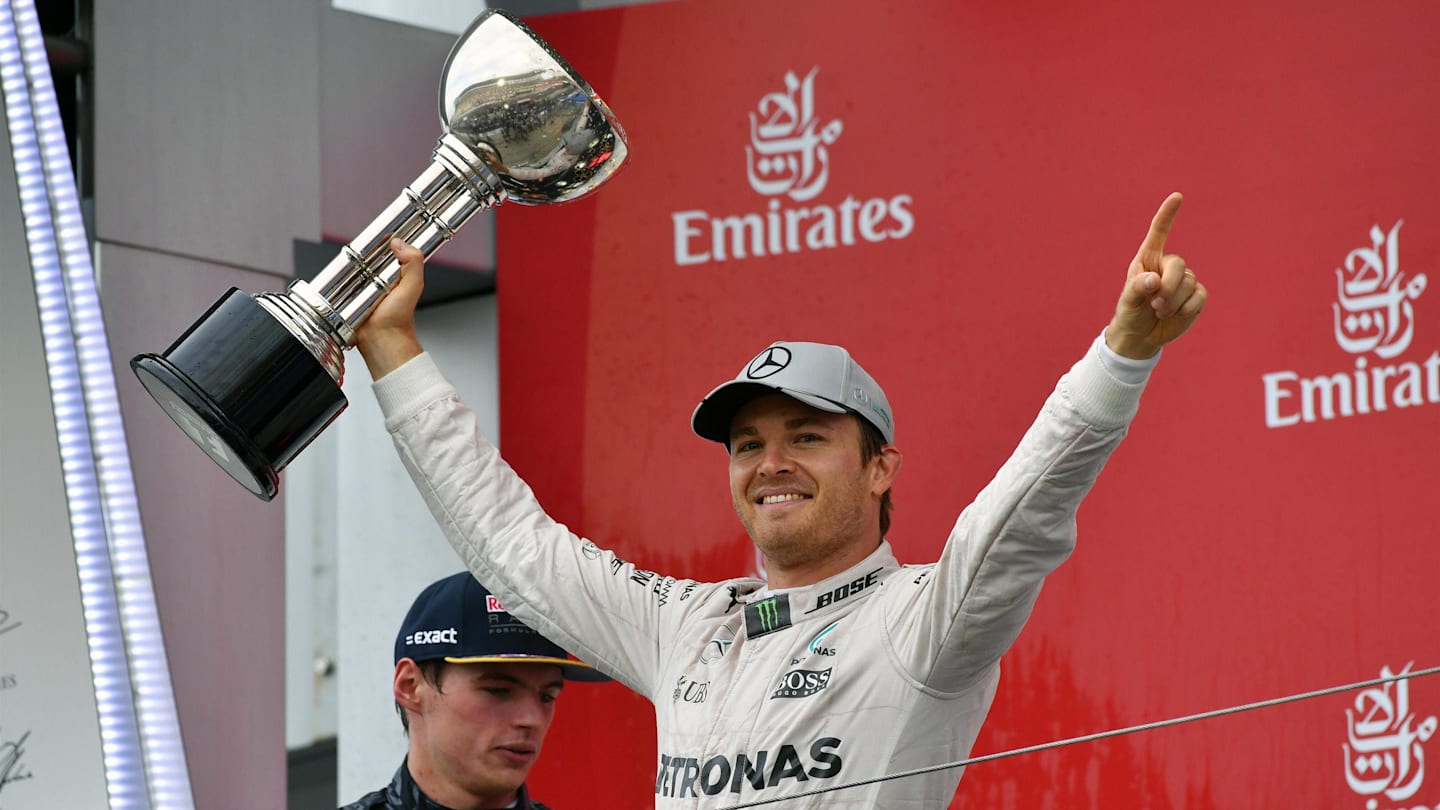
Race winner Nico Rosberg (GER) Mercedes AMG F1 celebrates on the podium with the trophy at Formula One World Championship, Rd17, Japanese Grand Prix, Race, Suzuka, Japan, Sunday 9 October 2016. © Sutton Images
Max Verstappen...
Finishing second after being only fifth fastest in final qualifying counted as a victory for Max Verstappen and Red Bull. Yes, there was some luck involved, notably Kimi Raikkonen’s five-place grid penalty for a gearbox change and the three-place penalty Sebastian Vettel got for causing a first-corner collision in Malaysia. Then Hamilton fluffed his start. Even so, the Dutchman capitalised to full effect. He kept what pressure he could on the canny Rosberg, and rebuffed Hamilton’s challenge in the chicane on the penultimate lap to secure a sixth podium of the year in impressive style.
...and Red Bull
A second-place finish for the seventh time in the last nine Grands Prix. Mercedes might still have a gap out front, but Red Bull's surge has been perfectly timed as they bid to beat Ferrari to second in the constructors' race.
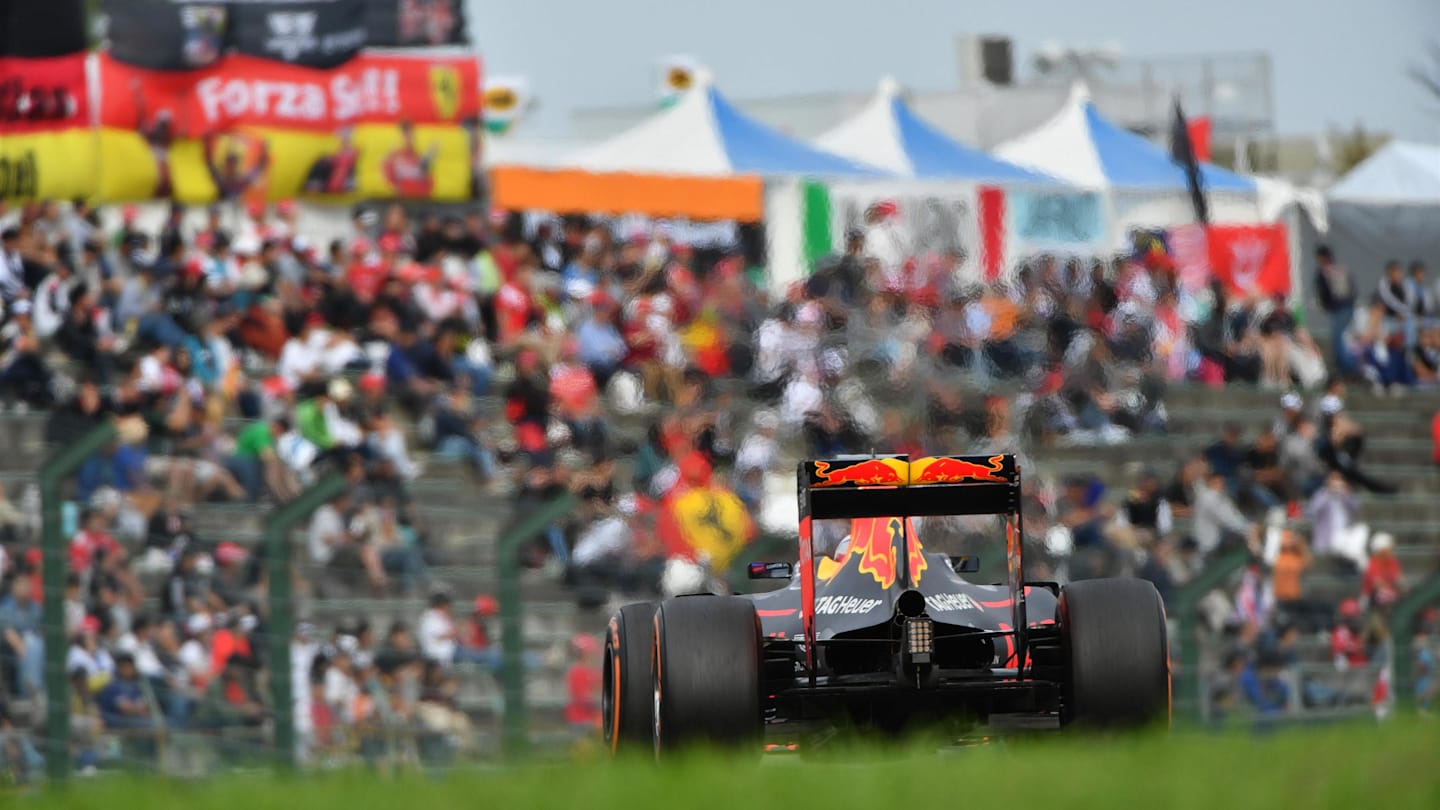
Max Verstappen (NED) Red Bull Racing RB12 at Formula One World Championship, Rd17, Japanese Grand Prix, Race, Suzuka, Japan, Sunday 9 October 2016. © Sutton Images
Esteban Ocon
In only his fifth Grand Prix, the 20-year-old Frenchman had the upper hand over his highly-rated Manor team mate Pascal Wehrlein. Neither was happy with their cars’ pace, but he made a great start, avoided any pit lane speeding penalties this weekend, and finished nigh on 20 seconds ahead of the German. He also felt that had he had a few more laps, he could have caught Esteban Gutierrez in 20th place.
In F1 you do what you can do in the machinery at your disposal, and Ocon is already making a big impression.
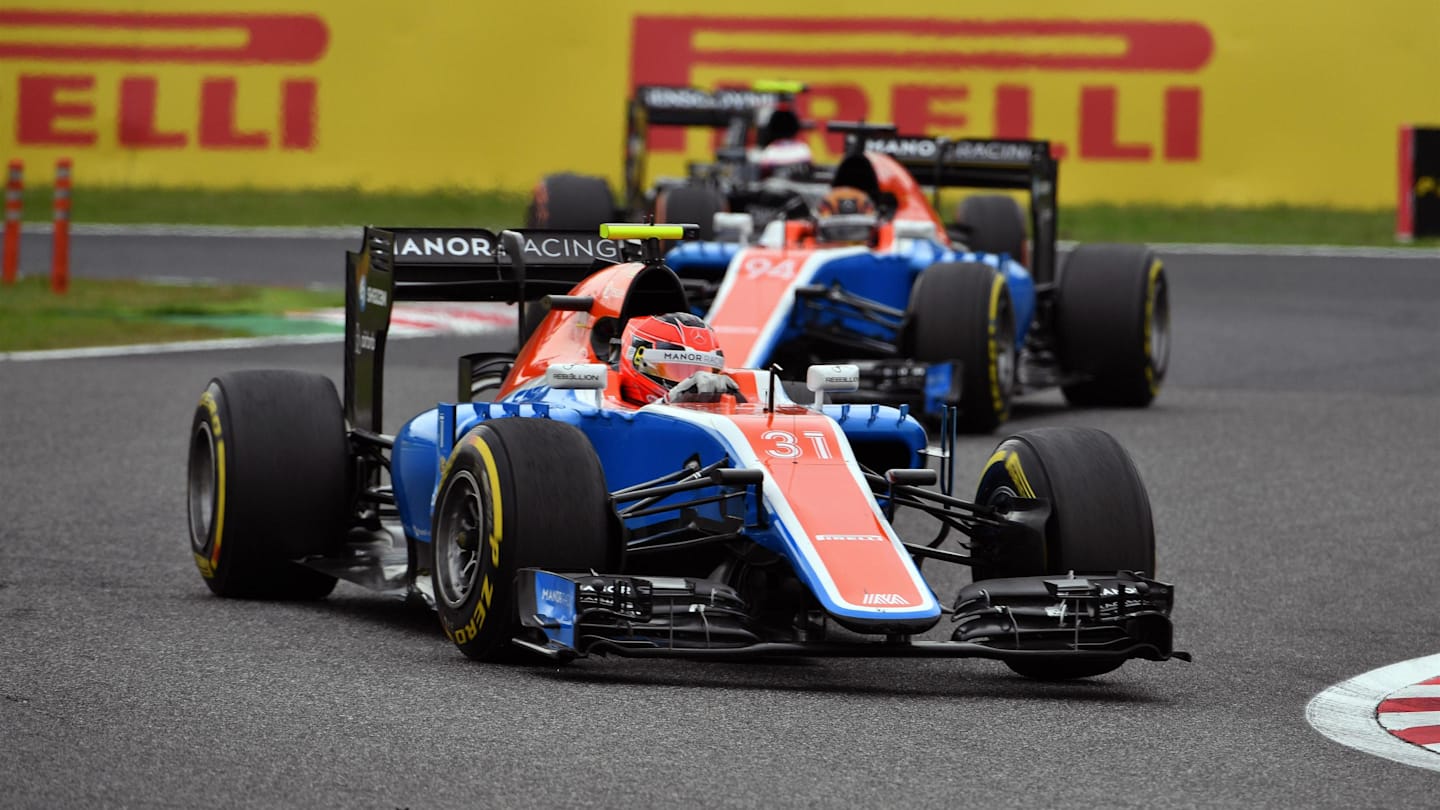
Esteban Ocon (FRA) Manor Racing MRT05 at Formula One World Championship, Rd17, Japanese Grand Prix, Race, Suzuka, Japan, Sunday 9 October 2016. © Sutton Images
Engineering standards
In the first 54 years of F1 racing, there was just one race in which every starter made it to the chequered flag - the 1961 Dutch Grand Prix at Zandvoort. It has now happened three times in the last 23 races - and twice in two years in Japan.
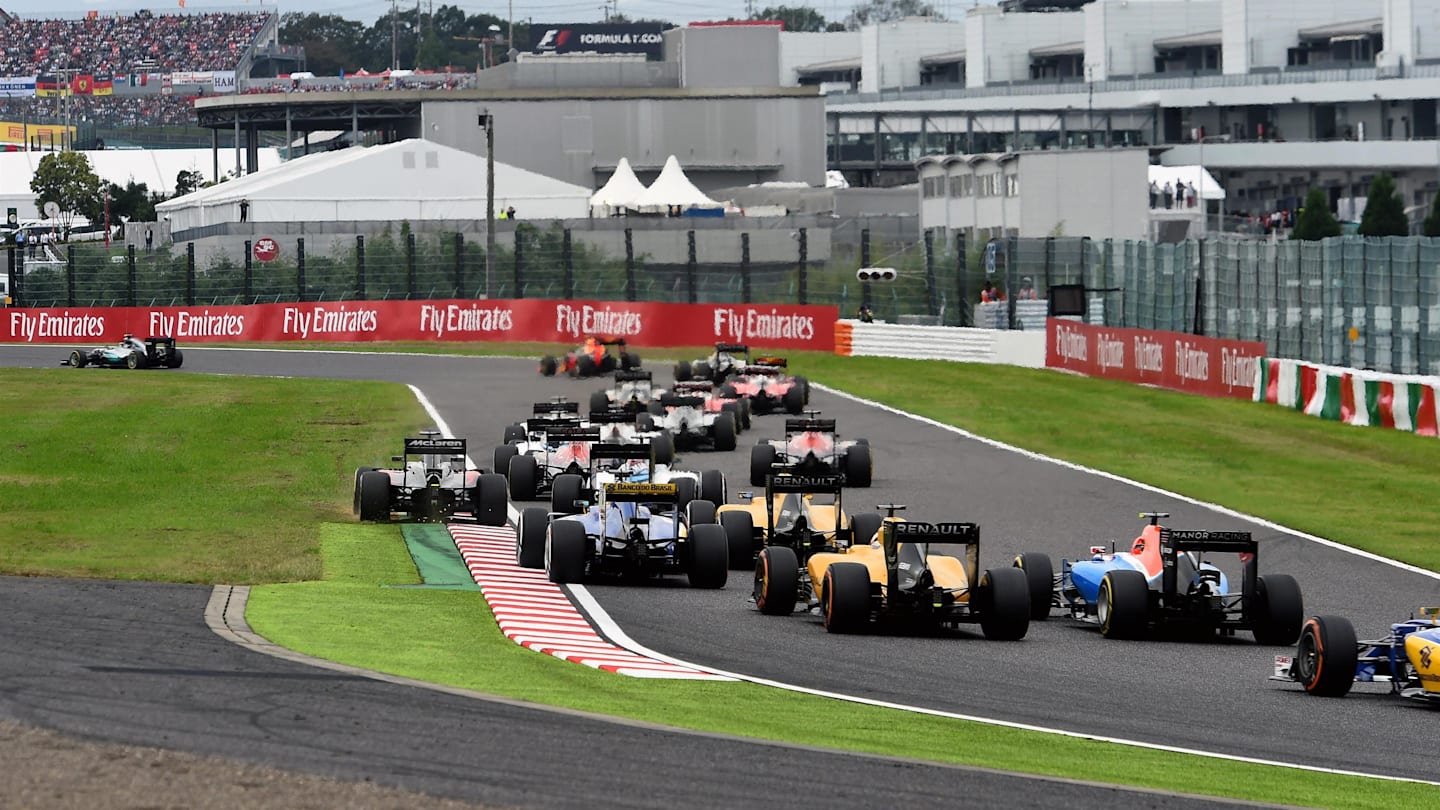
Nico Rosberg (GER) Mercedes-Benz F1 W07 Hybrid leads at the start of the race at Formula One World Championship, Rd17, Japanese Grand Prix, Race, Suzuka, Japan, Sunday 9 October 2016. © Sutton Images
The 100 club
Before Japan, just two drivers had ever reached the triple-figure mark for Grand Prix podiums - Michael Schumacher on 155, and Alain Prost on 105. The pair now have company: third might not have been the result Hamilton wanted, but it did represent his 100th top-three finish in F1.
The Briton has achieved the feat in just 186 starts. Prost got there on his 191st, although Schumacher remains the benchmark - his 100th podium came on just his 163rd start.
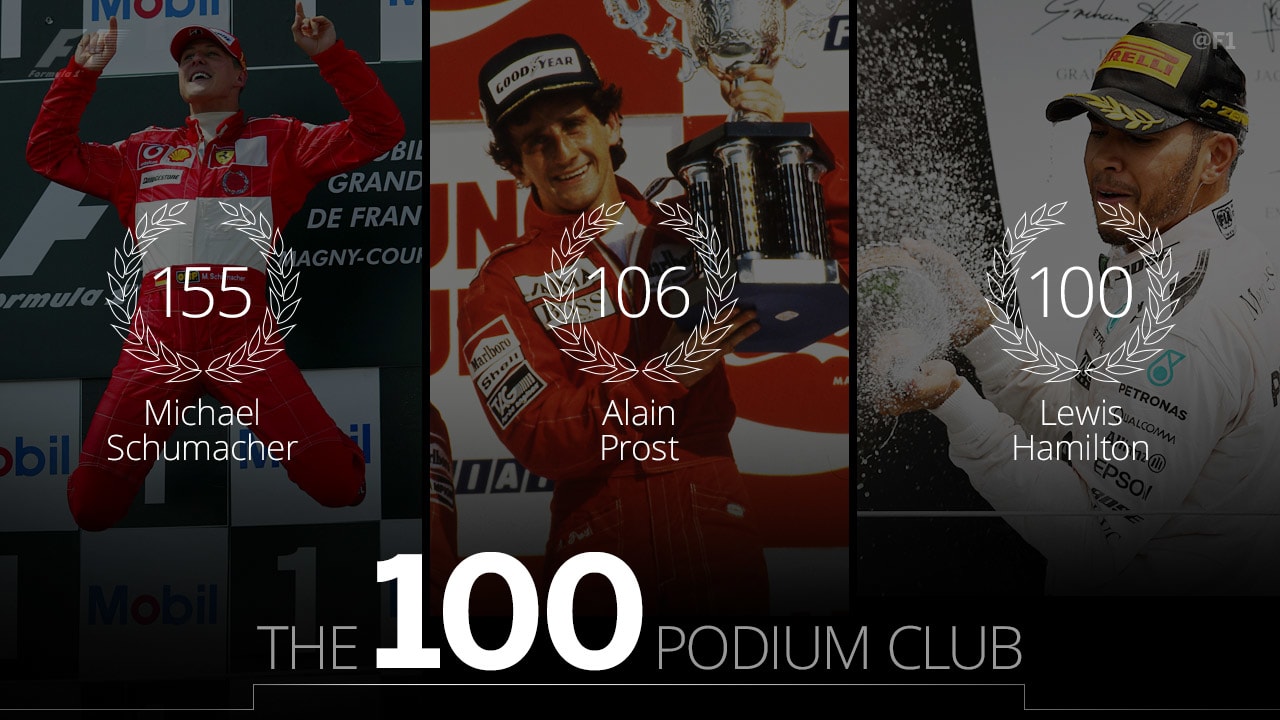
Lewis Hamilton became the third man in history, after Michael Schumacher and Alain Prost, to claim 100 Grand Prix podiums © FOWC Ltd
The Losers
Lewis Hamilton
If ever there was a race that Hamilton really needed to win it was this one. Instead, by his own admission he fluffed another start with too much wheelspin, plunged from second to eighth, and consigned himself to another afternoon of damage limitation. It is the fifth time this year that he has lost places from the start.
He recovered strongly, but in some ways that only compounded the sense of a missed opportunity - at one stage 20 seconds behind Rosberg, he closed that to six at the flag, hinting at what might have been. Instead he finished third, surrendering another 10 points to his title rival.
That 33-point gap is not insurmountable: in the four races between Austria and Germany this year, for example, he gained 43 points on his team mate. But there is no doubt this was a bruising weekend for the Briton, both on-track and off.
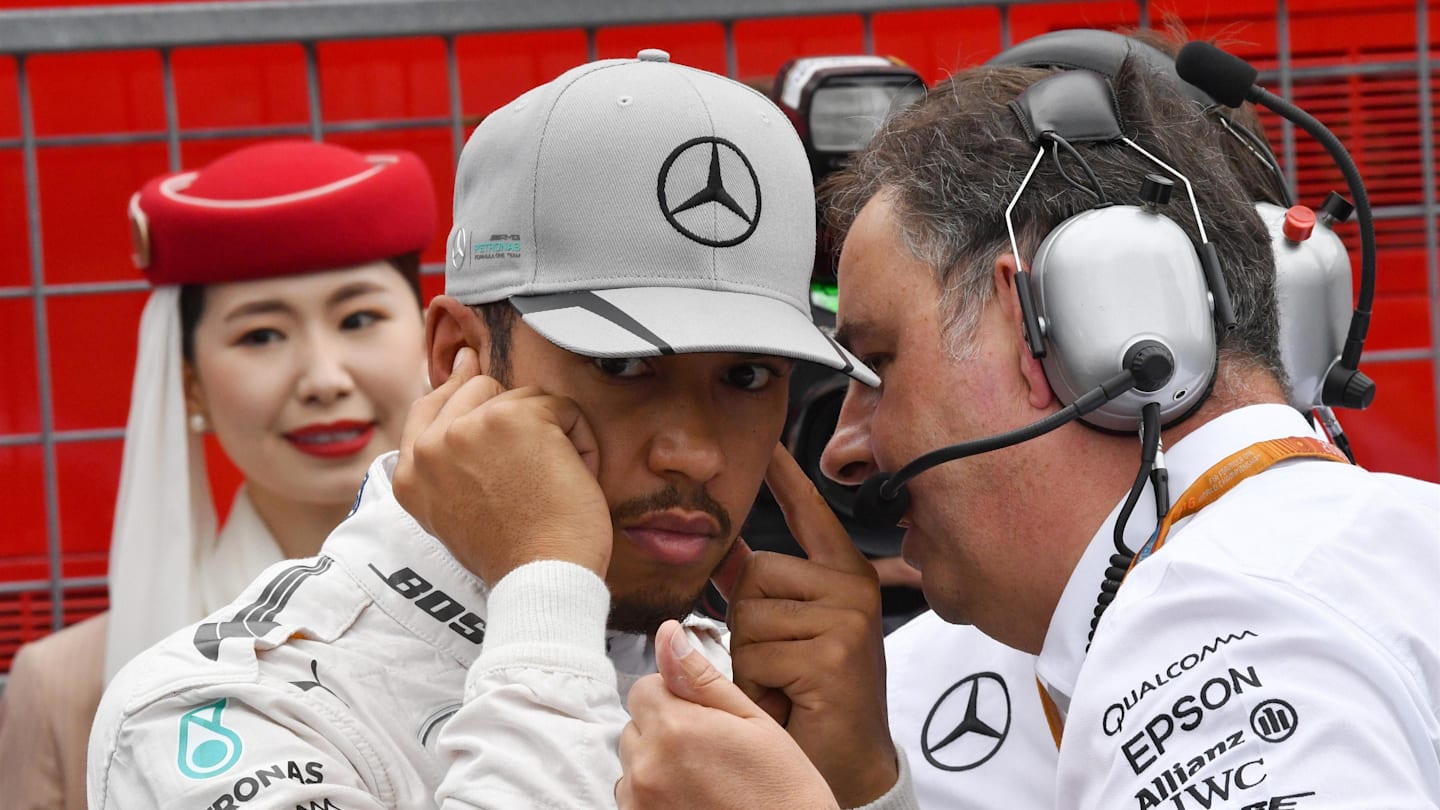
Lewis Hamilton (GBR) Mercedes AMG F1 and Ron Meadows (GBR) Mercedes AMG F1 Team Manager on the grid at Formula One World Championship, Rd17, Japanese Grand Prix, Race, Suzuka, Japan, Sunday 9 October 2016. © Sutton Images
Sebastian Vettel
Before this year, Vettel had never finished off the podium at Suzuka, a record that dated all the way back to 2009. He had not gone more than eight races without at least two podiums since his first full season with Toro Rosso in 2008. In Japan, both sequences were broken.
To make matters worse, Ferrari had the pace in Japan to merit more. A second-row lockout was disrupted by grid penalties, but by the third lap Vettel had jumped Ricciardo and Perez to claim third. Things were looking good: he even had a spell leading, between laps 30, when Rosberg pitted, and 34 when he made his own stop.
But though going against the tide of the hard tyre and switching to a set of softs for the last stint looked promising, ultimately it didn’t work out and left him unable to challenge Hamilton for the third place the Briton had just stolen. As a result the German dropped to sixth in the championship - he hasn't been lower than that since the opening races of 2014.
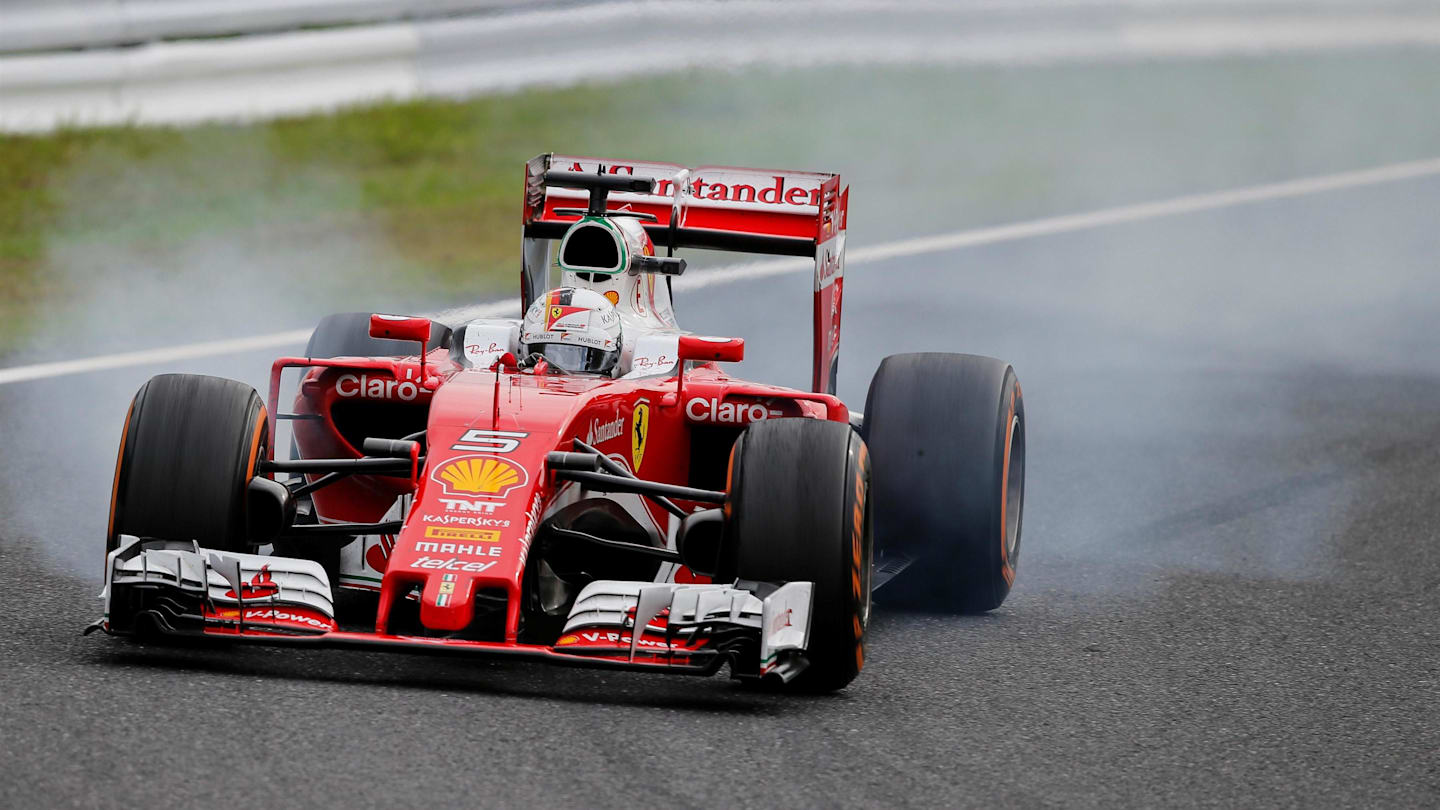
Sebastian Vettel (GER) Ferrari SF16-H at Formula One World Championship, Rd17, Japanese Grand Prix, Race, Suzuka, Japan, Sunday 9 October 2016. © Sutton Images
Romain Grosjean...
He qualified eighth, started seventh, was pushed out of eighth by Perez, but still ended the first lap in ninth. So to finish just under a second off the final point was particularly galling for the Frenchman - and also for Haas, who looked very strong here once they'd dialled in their new front wing.
In the end Williams' one-stop strategy trumped Haas's two-stopper, leaving Grosjean to chase Valtteri Bottas home.
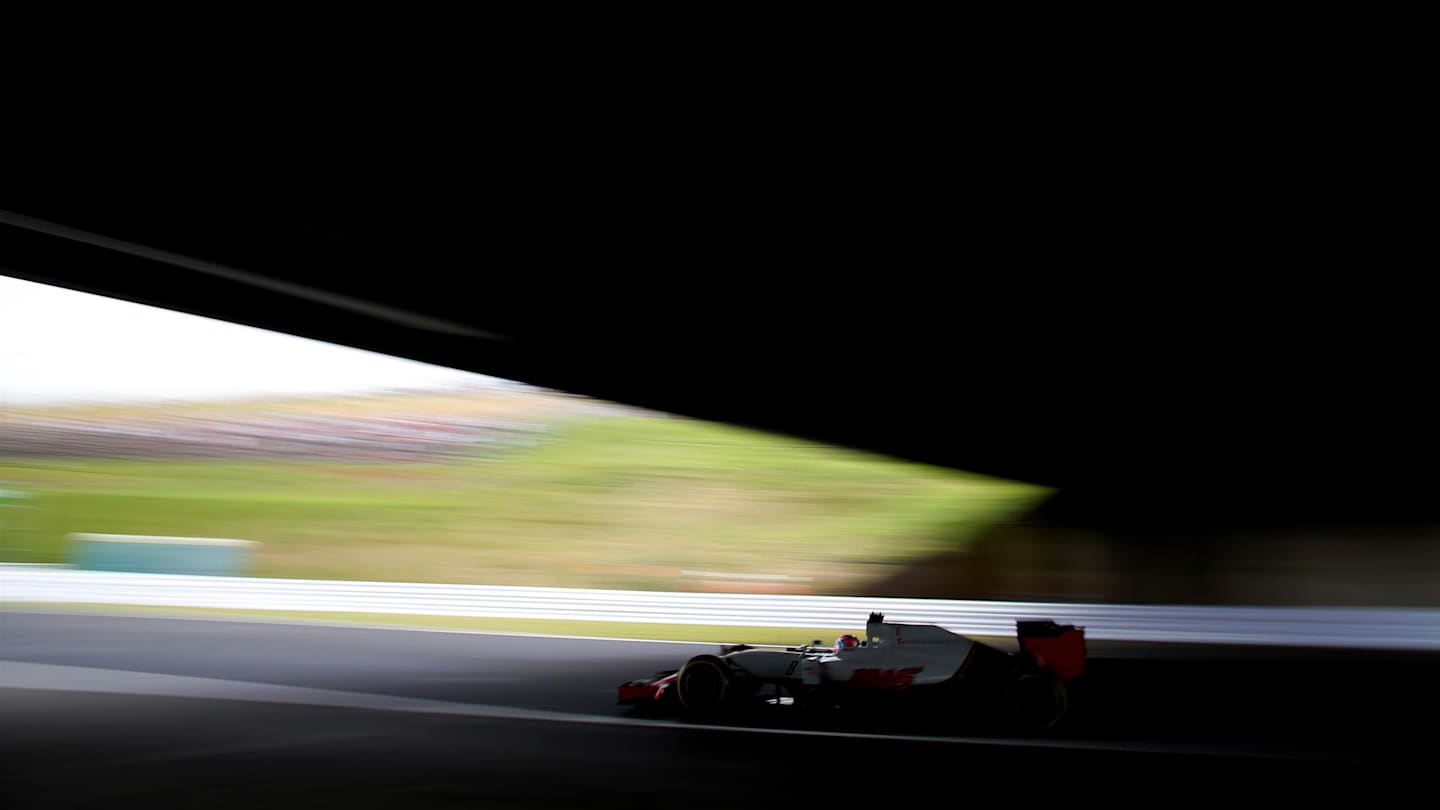
Romain Grosjean (FRA) Haas VF-16 at Formula One World Championship, Rd17, Japanese Grand Prix, Qualifying, Suzuka, Japan, Saturday 8 October 2016. © Sutton Images
...and his Haas team mate
Like Grosjean, points could have been on the cards for Esteban Gutierrez - he had run 10th for the first nine laps, and moved up one spot before his opening pit stop. But a spin at the final chicane, while trying to put a move on Toro Rosso's Carlos Sainz, proved extremely costly: he struggled thereafter and eventually came home 20th.
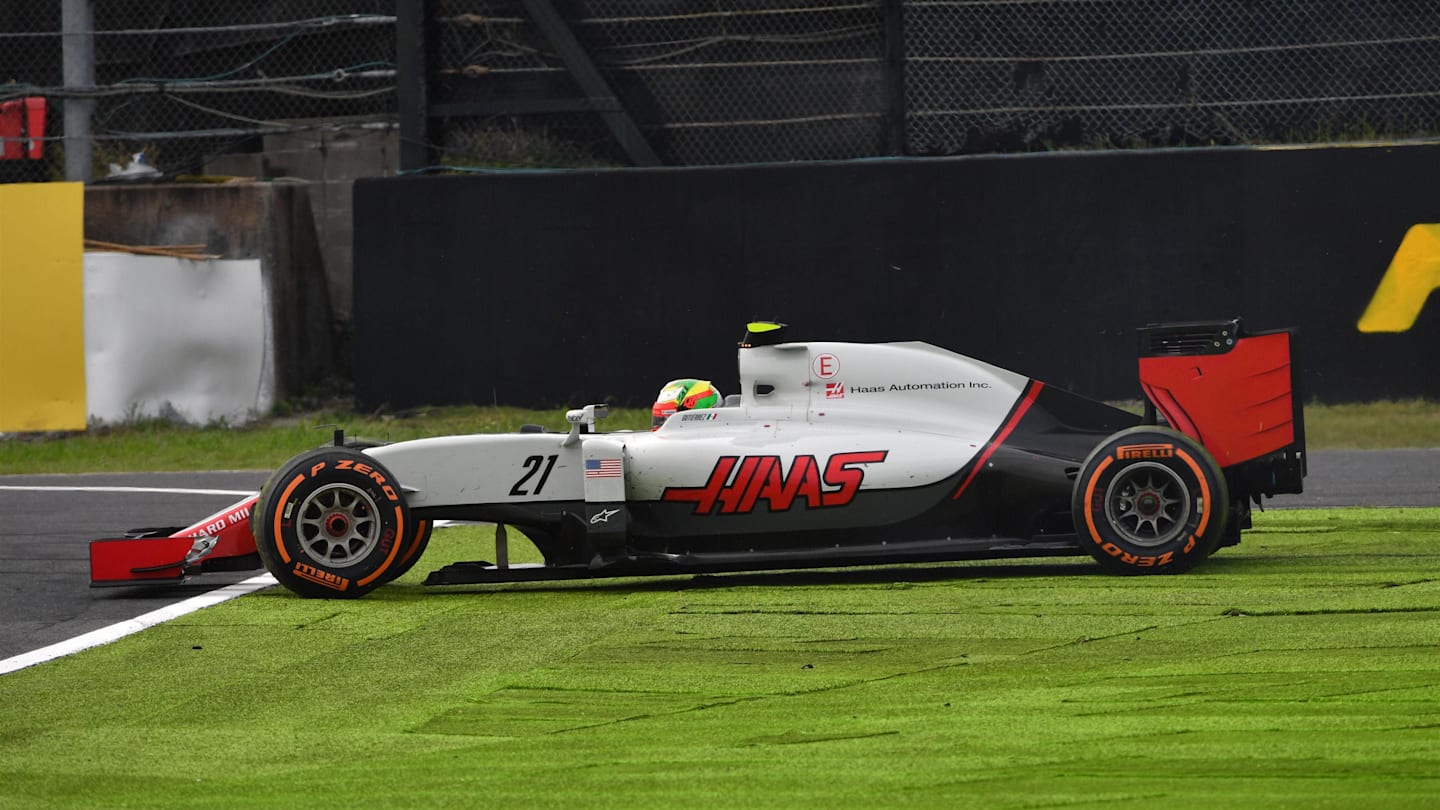
Esteban Gutierrez (MEX) Haas VF-16 spins at Formula One World Championship, Rd17, Japanese Grand Prix, Race, Suzuka, Japan, Sunday 9 October 2016. © Sutton Images
Mercedes and the opening lap
From 17 races, Mercedes have locked out the front-row on 10 occasions this year. And yet there have been just two occasions - Hungary and Great Britain, which started behind a safety car - where the Silver Arrows have been one-two at the end of the first lap.
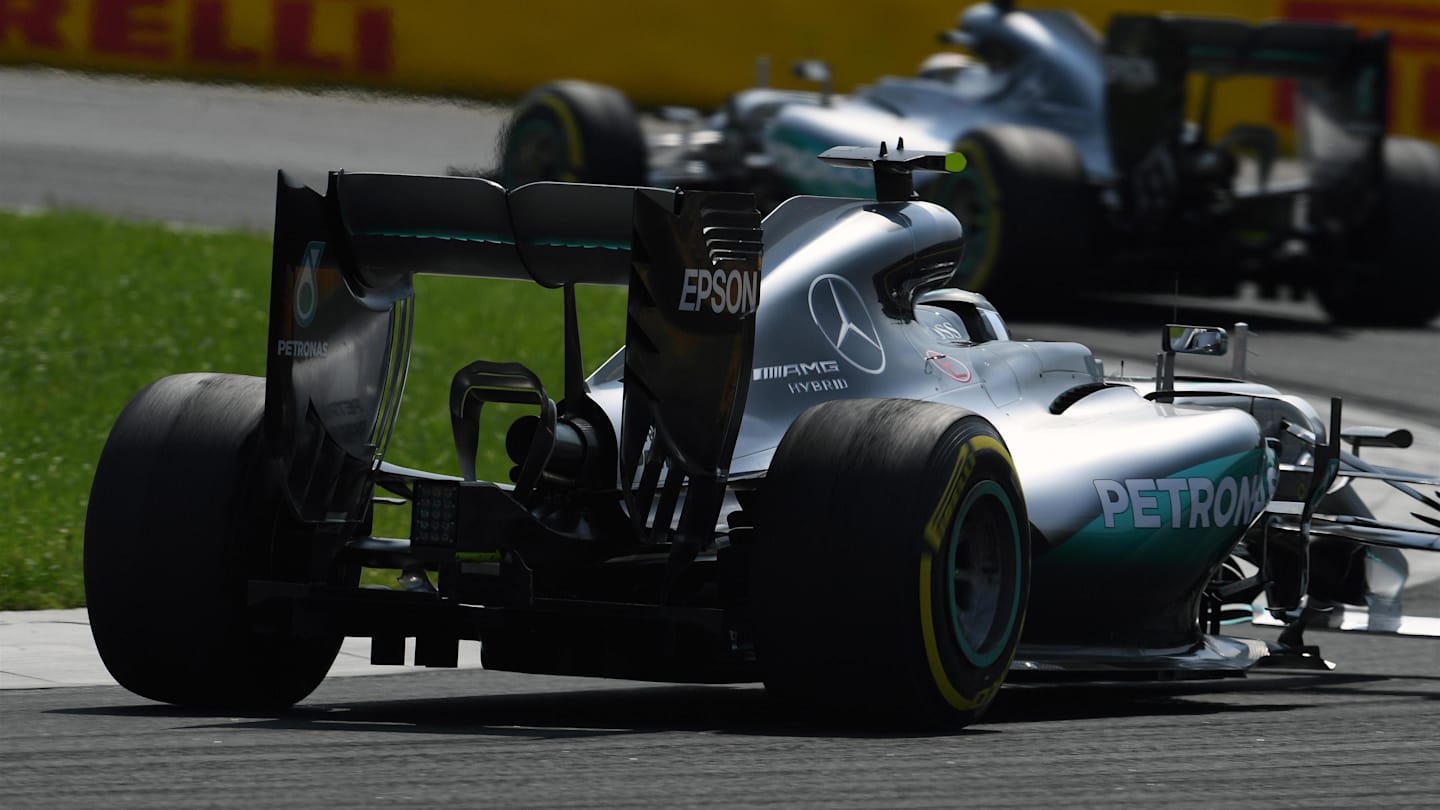
Nico Rosberg (GER) Mercedes-Benz F1 W07 Hybrid and Lewis Hamilton (GBR) Mercedes-Benz F1 W07 Hybrid at Formula One World Championship, Rd11, Hungarian Grand Prix, Race, Hungaroring, Hungary, Sunday 24 July 2016. © Sutton Images
